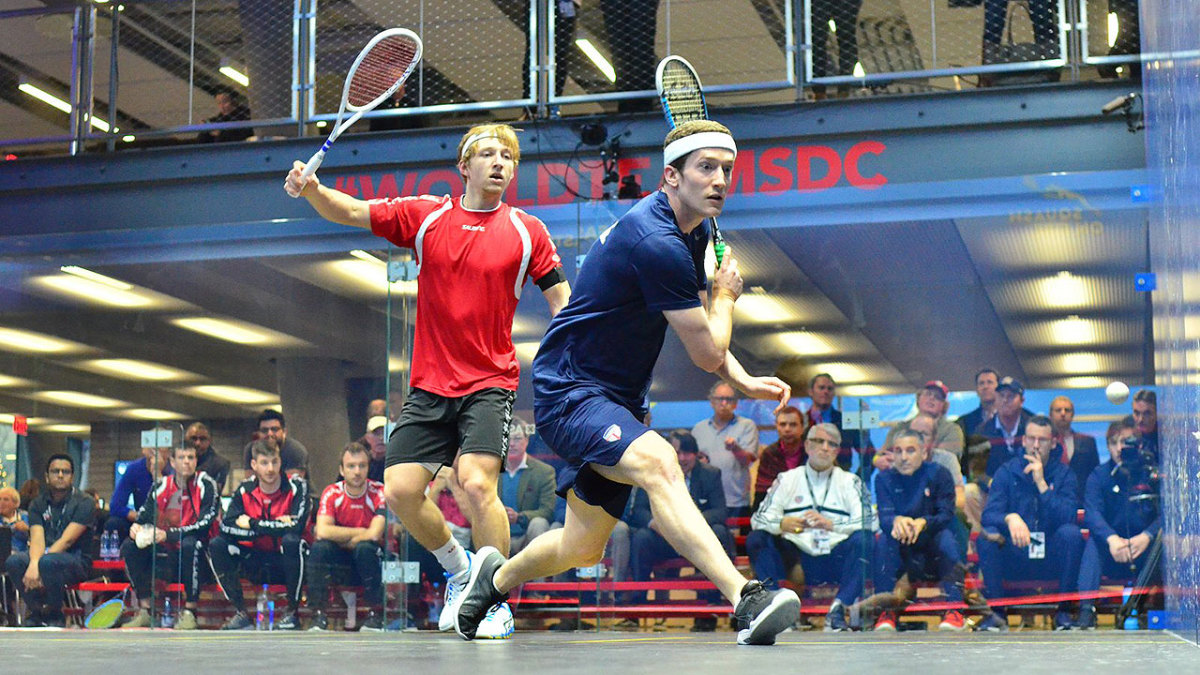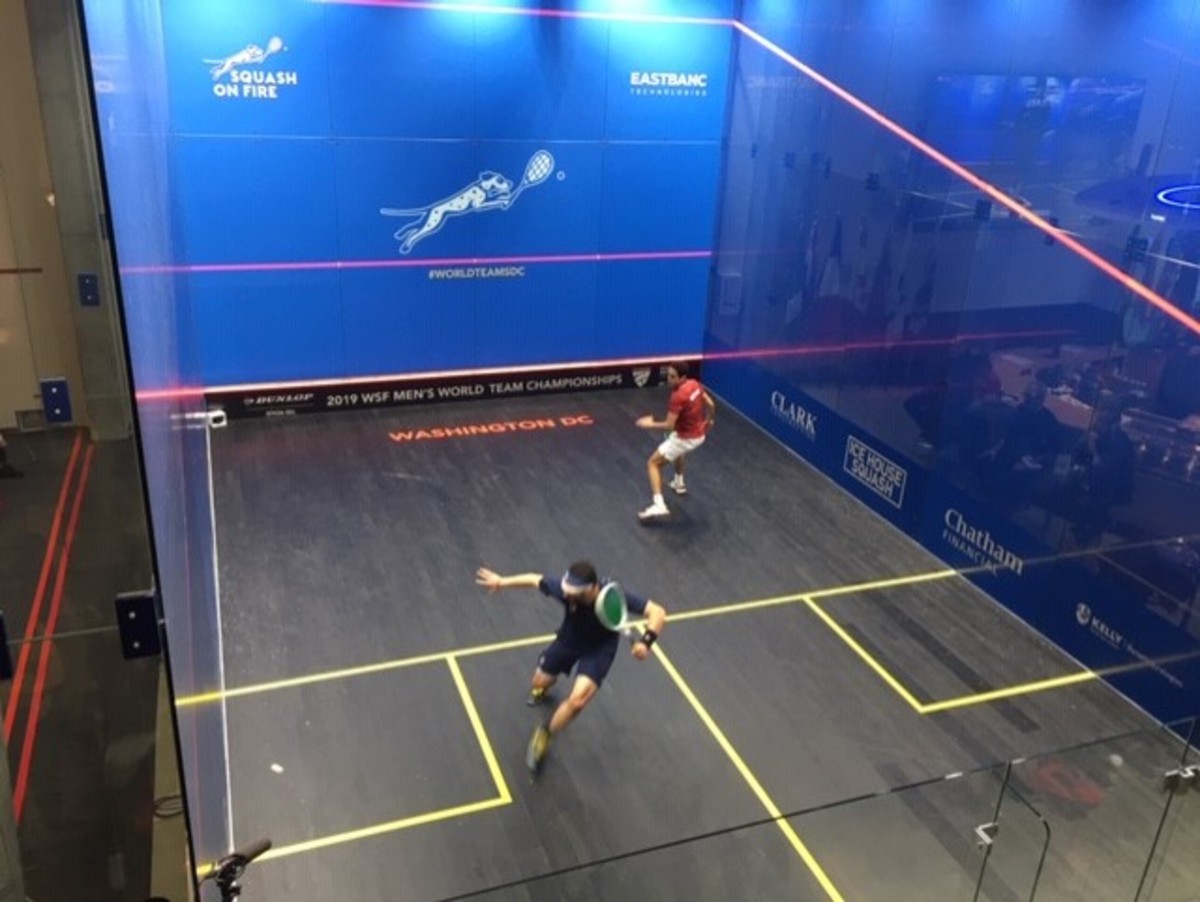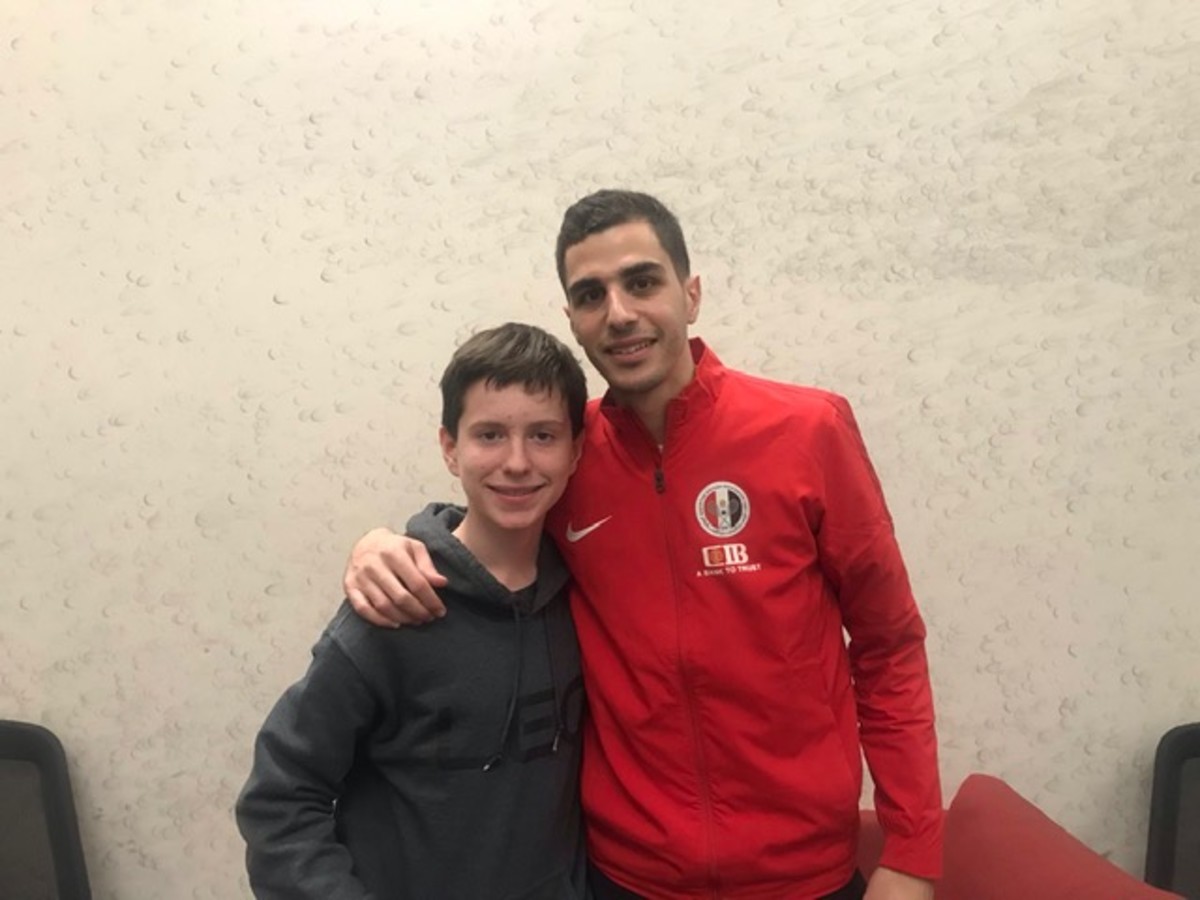World Championship Gives Up-Close Look at Growing Sport of Squash


The game of squash was spotlighted in the nation’s capital in December, as defending champion Egypt took home the World Squash Federation (WSF) Men’s World Team Squash Championship title in Washington, D.C. The tournament was hosted by Squash on Fire, a public, membership-free facility. It was the first time in the tournament’s 50-year-history it was held in the United States.
Squash is an indoor racquet sport played on a 32-by-21 foot court surrounded by four walls. The goal is to hit a hollow rubber ball roughly the size of a golf ball against the front wall, making sure the opposing player can’t return it before it bounces twice. The first player that doesn’t return a hit loses the point. The first player to win eleven points wins a game, and three games wins a match.
This leads to a very fast, exciting sport in which the two players move constantly to return each hit without running into each other. Squash is sometimes referred to as “chess on legs,” because it is a strategic sport in which a player has to think multiple hits in advance.
Reportedly originated in a British prison in the early 1700s as a simpler version of tennis, squash was first played outdoors. It then spread across the world, particularly to British colonies. The first squash court in the United States was built in 1884, at St. Paul’s school in New Hampshire. The majority of the teams in the tournament, which consisted of 23 four-player national teams this year, are from Great Britain or former members of the British Empire. England finished second in the biennial competition, while the U.S. finished 13.
Although Egypt’s victory in the tournament was no surprise, championship director Tim Garner said, “there have been some spectacular performances from some teams that weren't necessarily seeded to these positions.” For example, the Welsh team, originally seeded 11th, lasted until England knocked it out in the semifinals, finishing tied for third with France.

The U.S. team was coached by Paul Assaiante, who has won 17 national collegiate championships in a 20-year-span at Trinity College. The U.S. men lost their first two matchups, to tournament favorite Egypt and to Switzerland in an upset. However, they won their remaining three matches, defeating Canada on the tournament’s final day.
The tournament final featured the two heavyweights: England and Egypt, which have split the last six championships. In the first match, Egypt’s Karim Abdel Gawad, the world’s No. 4 ranked player, defeated England’s Declan James, the world No. 20, coming back from a 2-1 deficit to win, 3-2. The match was tense from start to finish. The two players, evenly matched, battled for 1 hour and 47 minutes.
World No. 1 Ali Farag of Egypt then defeated 17th-ranked Adrian Waller of England in a 57-minute match, 3-1. “This feels amazing,” said Farag. “Last time around, we managed to win it, and we were here to defend our title. To go back home with the trophy again, it is an amazing feeling.”

Squash is very good exercise due to the amount of quick movement needed. It is the perfect combination of physical engagement and mental strategy. “It requires everything. You need to be fast, agile, strong and have dexterity. I think it’s a fantastic game for everyone,” said U.S. star Todd Harrity. For these reasons, plenty of kids play squash. Squash on Fire offers private and public lessons for kids, along with a Junior Academy for young players that allows them to improve their game.
Squash may not have the same exposure in the U.S. as football, basketball, or even tennis, but that may be changing. One issue is that squash is typically played in private clubs, which limits access to the sport. According to the president of US Squash, Kevin Klipstein, “Facilities like [Squash on Fire] put a spotlight on how anyone can come and play squash.”
Harrity hopes more people will watch the sport. “Everything that can get us more exposure, and have squash be seen by more people, is such a big help,” he said.
And who knows—maybe we’ll see squash on the biggest stage soon. Squash isn’t yet an Olympic sport, but some people are working to change that. As Klipstein said, “The next opportunity for squash to be in the Olympic Games is Los Angeles in 2028. We are working on that.”
